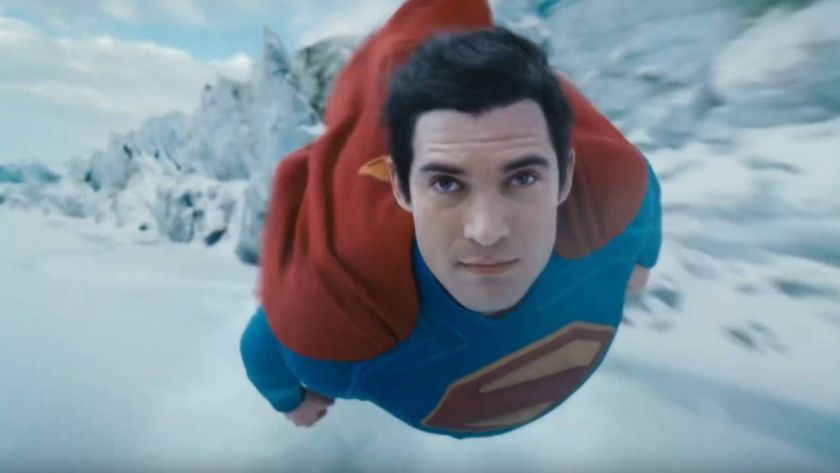Exclusive Interview with Woody Allen
Total Film chats to the prolific New Yorker about working with Scarlett Johansson and shooting his new crime drama Match Point in London
Do you ever allow people to read your scripts beforehand?
No. That’s one of the reasons that I made Match Point in England because in the United States the studios are perfectly willing to make films with me but they want to read the script and they’d like to know who’s in it. They want to have some kind of relationship or input and I’ve never worked that way. Not out of any ego or neurosis – I just can’t work that way. I made Match Point in England because I was able to raise the money with no questions asked.
Why did you cast Scarlett Johansson and what do you think of her as an actress?
Well, it’s interesting because I was under the impression that we had to use all English people because of the way the money was raised for Match Point. It turned out we had to use a vast percentage of English cast and crew but not 100 percent. So originally I cast Kate Winslet and then shortly before we shot, she called and said she’d just finished a picture and she was exhausted and hadn’t spent enough time with her new baby. I could see that she wanted to back out and I understood completely. So I had to recast and it turned out I could cast an American so I went down the list and saw Scarlett’s name. I had seen her in Lost In Translation and Ghost World and thought she was beautiful, sexy, a wonderful actress – completely interesting on the screen. I just felt like many other people that she was a new, legitimate, authentic movie star who had burst onto the screen, but not in a superficial way – she had real depth to her. I sent her the script on a Friday night; by Sunday, she was in.
Did she come straight to the set?
Yes. The first thing I shot with her was early morning. She had flown all night from the United States and I had no rehearsal with her at all and she came in and did the scene in the pub with Jonathan Rhys-Meyers. It’s a very hard scene and she just did it off the top of her head, gracefully and beautifully, and I knew that all my faith in her had been justified. I wanted someone very sexy so the audience could understand why Jonathan felt an electrifying passion for her right away. They had to be a hot couple.
Jonathan Rhys-Meyers’ character is pretty amoral, but you seem to want the audience to root for him…
That’s strictly a function of the actor. By casting Jonathan Rhys-Meyers, I was casting somebody who is naturally magnetic and sweet and tortured and sympathetic. He’s got a very charismatic personality. He’s not extroverted or pushy, but he draws you in. You don’t dislike him as much as if I had cast, say, Robert De Niro or Jack Nicholson, who have intrinsically tough personalities. In some ways, you empathise with Jonathan’s suffering in the film despite the fact that the situation is pretty terrible.
The film says that no matter how hard you work at something, there is always an element beyond our control. Is that how you feel?
The movie expresses my philosophy to a T. I’ve always been a huge believer in luck. I think that people hate to admit the enormous part that luck plays in life because it means that much of life is out of our control. You’re always running into people who say, “I make my own luck.” And hard work, of course, is important. But in the end you have to have a lot of luck, in your relationships, in your career, with your health, and a million different ways that render all the searching and hard work and practicing and praying and anything else you care to do to in some way influence your life – render it slightly meaningless. That’s always been a great philosophy of mine.
Apparently, actors are only allowed to have your scripts for two hours, so they have to read them straight away then hand them back. Why is that?
Well, I don’t like producers or studios to read my scripts because they don’t read it for their own edification, they read it because they want to give you input. And just objectively, in the same sense that they wouldn’t ask me to negotiate their business deals or contracts, I have no interest or faith in their competence to judge the structure of a script or the dialogue or characters. So they don’t get to read the script for that reason. For the cast, if the person has a big part in the film, like Scarlett or Jonathan, then I give them the whole script to read. But if an actor is just going to come in for a day or so, then they don’t need to read 120 pages when they only appear on three pages. And no actor has ever turned me down on the basis that I wouldn’t let them read the whole script. They couldn’t care less.
So even Scarlett and Jonathan only had it in their hands for two hours?
Well, yeah, then I’d like it back because, you know, they can Xerox it and give it to some producer and next thing you know I’m getting input!
Sign up for the Total Film Newsletter
Bringing all the latest movie news, features, and reviews to your inbox
You went through a rough patch personally and professionally but you seem to have been reborn in recent years. The question is: do you feel lucky?
I have been very lucky, there is no question about it. I’ve had an extremely lucky life because, first of all, I was born with a certain amount of talent which was great for me because I was a poor student and if I didn’t have talent to fall back on, I don’t know what I would have done with my life. And my parents lived long, healthy lives. My father died just after he turned 100 and my mother was 95 when she died. I’ve had good health my whole life, I was lucky in the film business. When I started, all the critics chose to overlook the many mistakes I made and emphasised all the good things. So I’ve had nothing but luck. I mean I could walk out of the room and drop dead but I feel physically okay – I exercise every day, I take care of my health, I eat intelligently, I go to bed early. So I should be able to make films as long as people are willing to back them.
Actors always say that your casting meetings with them are very short and perfunctory. Are you happy going on first impressions?
I’m not a great social person. I don’t like to meet people, and it’s a very uncomfortable thing when an actor or actress comes in. They want to be liked and hired for the job; I’m meeting six of them and only one of them can have the job. So I usually try and cast from films and videos, and then when I pick a person I like, I take one live look just to make sure they are what I think they are. I always tell them that I’m only going to say hello and not to feel that the brevity of the meeting reflects anything.
And that hello is enough?
It’s enough because I’ve seen them on video or in movies. Most of the time it works out very well but once in a while I’ll hit a clinker. I’ll hire somebody and they won’t be very good in the part. And then I have to work with them or God forbid, replace them. You always hope you don’t have to do that.
So how’s your new film, Scoop, going?
I made it in London. It’s roughly journalistic, although it’s not really about journalism. Scarlett Johansson plays a reporter on a college newspaper who’s vacationing in London for the summer; I play a cheap, small-time vaudeville magician; Hugh Jackman plays a gorgeous aristocrat who falls in love with Scarlett; and Ian McShane plays a journalist. It’s a combination love story and mystery – and it’s meant to be funny. I intend it to be funny and Scarlett’s very funny in it. If it doesn’t work, I guess I’ll be hearing from you next year.
The Total Film team are made up of the finest minds in all of film journalism. They are: Editor Jane Crowther, Deputy Editor Matt Maytum, Reviews Ed Matthew Leyland, News Editor Jordan Farley, and Online Editor Emily Murray. Expect exclusive news, reviews, features, and more from the team behind the smarter movie magazine.












